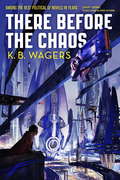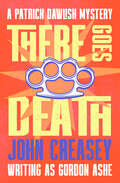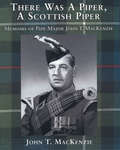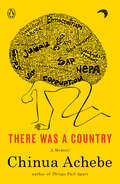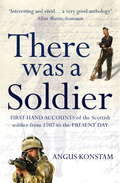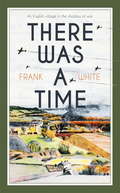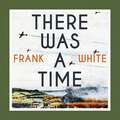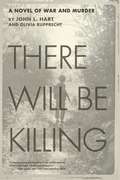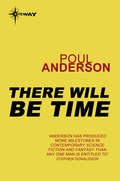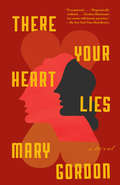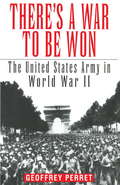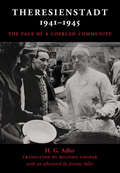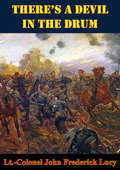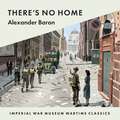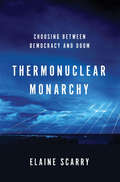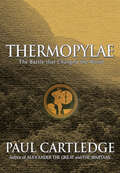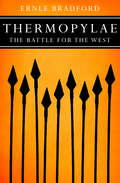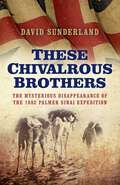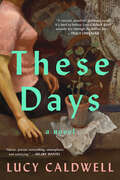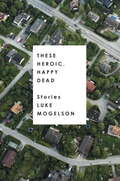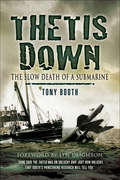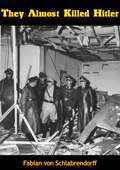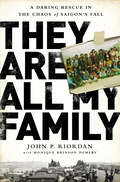- Table View
- List View
There Before the Chaos: The Farian War, Book 1 (The Farian War Trilogy)
by K. B. WagersAn epic space opera trilogy featuring the gunrunner empress Hail Bristol, who must navigate alien politics and deadly plots to prevent an interspecies war.The battle for the throne is over. The war for the galaxy is just beginning. Hail Bristol, infamous galactic gunrunner and former runaway princess, never expected to inherit the throne of Indrana. But after avenging the murder of her family and cleansing the Empire of usurpers in a bloody civil war, the former outlaw must fulfill her duties to her people. Hail retires her gun and throws herself into the rebuilding of her Empire. Her hard-won peace is short-lived. When Indrana's closest ally asks Hail to intervene in an interstellar military crisis, she embarks on the highest stakes diplomatic mission the Empire has ever faced. Caught between two alien civilizations at each other's throats, she must uncover each side's true intentions before all of humanity becomes collateral damage in a full-blown galactic war.There Before the Chaos begins a fresh, pulse-pounding space opera series from an exciting new voice in science fiction. For more from K. B. Wagers, check out: The Indranan War trilogy Behind the Throne, After the Crown, Beyond the Empire
There Goes Death (The Patrick Dawlish Mysteries)
by Gordon AsheIn this action-packed crime thriller, British sleuth Patrick Dawlish learns that WWII can bleed violence where you least expect it . . . Since the beginning of World War II, Patrick Dawlish has been in the service of British Intelligence but is still able to help out Scotland Yard in his usual unofficial capacity. This proves handy when Dawlish&’s fellow club member Robbie Graham reveals he has recently survived numerous attempts on his life. Graham has just been transferred from Libya to London, which means that whoever wants him dead knows troop movements. After thwarting an attacker from pushing Graham into the Thames, Dawlish learns that his friend isn&’t the only person being threatened. In fact, numerous people from Graham&’s home in Dorset are living in fear. And when the threats escalate into actual murder, Dawlish must hunt down a killer bent on destroying the peace of the countryside with their private war . . .
There Was A Piper, A Scottish Piper: Memoirs of Pipe Major John T. MacKenzie
by John T. MackenzieThe memoirs of John T. MacKenzie reveal a truly remarkable man: a highly respected authority on highland piping with a commitment to tradition and excellence in performance. Born in Edinburgh, Scotland, John T. was a student of piping at age nine. Enlisted in the Scots Guards, he saw active service in the war zones of North Africa, participated in the Liberation of Norway and was later posted to active duty in the Malaysian jungle. John T. MacKenzie bears personal witness to the horrors and valour of warfare. Throughout, his devotion to highland piping remained, and remains, in the forefront of his life. Appointed personal piper to the Royal Household in 1946, John T. MacKenzie has piped at numerous ceremonial events in Europe and North America. His recruitment as a Pipe Major to the Royal Canadian Air Force in 1952 brought him to Canada, and ultimately to Glengarry County, where his contributions to piping are legendary.
There Was a Country: A Memoir
by Chinua AchebeFrom the legendary author of Things Fall Apart—a long-awaited memoir of coming of age in a fragile new nation, and its destruction in a tragic civil warFor more than forty years, Chinua Achebe has maintained a considered silence on the events of the Nigerian civil war, also known as the Biafran War, of 1967–1970, addressing them only obliquely through his poetry. Now, decades in the making, comes a towering account of one of modern Africa’s most disastrous events, from a writer whose words and courage have left an enduring stamp on world literature. A marriage of history and memoir, vivid firsthand observation and decades of research and reflection, There Was a Country is a work whose wisdom and compassion remind us of Chinua Achebe’s place as one of the great literary and moral voices of our age.
There Was a Soldier
by Angus KonstamFor hundreds of years, the Scottish soldier has been recording his experiences. From the War of the Spanish Succession until the deployment of regiments in Iraq, Scottish soldiers have written home with tales of their exploits, or had details of their experiences published in newspapers, regimental histories and books. The result is a wealth of primary information, telling the story of the Scottish soldiers who fought in Europe, America, Africa, India and the Far East. Included in the collection are letters, lyrics of songs and poems composed by the soldiers themselves, highland anecdotes, extracts from official reports, and even typescripts of interviews. This is the gritty, real-life story of the Scottish soldier, told in his own words.
There Was a Time
by Frank WhiteOn the day the Second World War broke out, Frank White was a 12-year-old schoolboy in Manchester. On the day it ended, he was serving on a Royal Navy warship in the Indian Ocean. In 2013, he started to write this novel.'What I wanted to do,' he says, 'was to capture that feeling of those times and remind people of what the country went through.''Fabulous, often funny . . . the authentic, freewheeling atmosphere of a time when all bets were off' Daily MailAs Churchill and the nation face their darkest hour in 1940, a Lincolnshire village wakes up to a glorious summer's morning.Following Dunkirk, the fate of the whole war will soon rest with the RAF and their desperate effort to win the Battle of Britain. If they fail, Hitler's next step will be invasion.And as the scene comes to life before us over the next six months, this shadow of war will not disappear.From the pub to the church, struggling single mother to the lady of the manor, the paper boy to a traumatised bomb disposal volunteer, this superb jewel of a novel portrays a community of people and weaves together their stories with passion, betrayal, intrigue and suspense.There Was a Time is a triumph of the storyteller's art.This edition includes a new Author's Note and additional illustrations by the author.
There Was a Time
by Frank WhiteOn the day the Second World War broke out, Frank White was a 12-year-old schoolboy in Manchester. On the day it ended, he was serving on a Royal Navy warship in the Indian Ocean. In 2013, he started to write this novel.'What I wanted to do,' he says, 'was to capture that feeling of those times and remind people of what the country went through.''Fabulous, often funny . . . the authentic, freewheeling atmosphere of a time when all bets were off' Daily MailAs Churchill and the nation face their darkest hour in 1940, a Lincolnshire village wakes up to a glorious summer's morning.Following Dunkirk, the fate of the whole war will soon rest with the RAF and their desperate effort to win the Battle of Britain. If they fail, Hitler's next step will be invasion.And as the scene comes to life before us over the next six months, this shadow of war will not disappear.From the pub to the church, struggling single mother to the lady of the manor, the paper boy to a traumatised bomb disposal volunteer, this superb jewel of a novel portrays a community of people and weaves together their stories with passion, betrayal, intrigue and suspense.There Was a Time is a triumph of the storyteller's art.This edition includes a new Author's Note and additional illustrations by the author.
There Was a Time
by Frank WhiteFrom an author who lived through - and served in - the conflict, a brilliant novel set in an English village at a turning point of the Second World War.A Lincolnshire village on a glorious summer's morning in 1940, the countryside as still as a painting. In the blue sky above, the fate of the whole war will soon rest with the RAF and their desperate effort to win the Battle of Britain. If they fail, Hitler's next step will be invasion.And as the scene comes to life before us over the next six months, this shadow of war will not disappear - the conflict will take husbands and sons away, bring in evacuees from the city and soldiers to defend the coast. There will be more money from war work, but less to spend it on - legitimately at least. Everywhere, the feeling of change is in the air.From the pub to the church, the humblest cottage to the biggest farm, from a struggling single mother to the lady of the manor, the paper boy to a traumatised bomb disposal volunteer, this superb jewel of a novel portrays a community of people and weaves together their stories with passion, betrayal, intrigue and suspense.There Was a Time is a triumph of the storyteller's art.(P)2017 Hodder & Stoughton Limited
There Will Be Killing
by Olivia Rupprecht John HartThis wasn't supposed to be Israel Moskowitz's war. What country in its right mind would draft a child psychiatrist fresh out of his residency from Columbia University Med School and send him to Vietnam in 1969? But Izzy was here for the duration: three-sixty-four and a wake-up. A year that would change everything. Assigned to the 99KO, the psychiatric unit of the 8th Field Hospital in sultry Nha Trang, Izzy attempts to use his skills in ways he never could have imagined; not to heal, but to get boys back onto the field of battle. A circle of compatriots soon grows around him - Gregg, the surfer dude turned psychologist; Rick, the tough-as-nails Special Ops commando; J. D. , a man of many guises and even more secrets; Margie, the gorgeous, relentless head psychiatric nurse; Kate, the stunning thrill-seeker with a taste for the illicit; Nikki, the endearing, incongruously sweet Red Cross dolly. As their relationships weave and intertwine, the face of Vietnam evolves for Izzy. But nothing will turn his world upside down - and redefine the nature of war to him - like the mission on which he finds himself an unwilling participant. Someone is massacring soldiers in unthinkable ways with the goal of demoralizing via terror, and Izzy needs to be part of the team tracking down the killer. Before he'd come to Vietnam, Izzy had never heard the term "ghost soldier. " Now one might dictate what remains of his life.
There Will Be Time
by Poul AndersonJack Havig seemed like an ordinary man. But since he was a small child he had kept a frightening and exhilarating secret. He was a born time-traveller - a man who could cross the centuries just by willing himself to.Over the years, he had investigated the past - from Christ's Jerusalem to the America of the Indian tribes, from Athens to mediaeval Constantinople. And, seeing the future, he found meaning in life and a reason for his gift. He sensed that there were others like him. Men and women who must fight for man's future. Because that future threatened the extinction of the whole of human civilisation...
There Your Heart Lies: A Novel
by Mary GordonFrom the award-winning novelist Mary Gordon, here is a book whose twentieth-century wisdom can help us understand the difficulties we face in the twenty-first: There Your Heart Lies is a deeply moving novel about an American woman’s experiences during the Spanish Civil War, the lessons she learned, and how her story will shape her granddaughter’s path.Marian cut herself off from her wealthy, conservative Irish Catholic family when she volunteered during the Spanish Civil War—an experience she has always kept to herself. Now in her nineties, she shares her Rhode Island cottage with her granddaughter Amelia, a young woman of good heart but only a vague notion of life’s purpose. Their daily existence is intertwined with Marian’s secret past: the blow to her youthful idealism when she witnessed the brutalities on both sides of Franco’s war and the romance that left her trapped in Spain in perilous circumstances for nearly a decade. When Marian is diagnosed with cancer, she finally speaks about what happened to her during those years—personal and ethical challenges nearly unthinkable to Amelia’s millennial generation, as well as the unexpected gifts of true love and true friendship.Marian’s story compels Amelia to make her own journey to Spain, to reconcile her grandmother’s past with her own uncertain future. With their exquisite female bond at its core, this novel, which explores how character is forged in a particular moment in history and passed down through the generations, is especially relevant in our own time. It is a call to arms—a call to speak honestly about evil when it is before us, and to speak equally about goodness.
There's a War to Be Won: The United States Army in World War II
by Geoffrey PerretTHERE'S A WAR TO BE WON is the landmark story of one of the greatest armies in history, a conscript force of amateur soldiers who had an unparalleled record of combat success. Here -- for the first time in one volume -- is the chronicle of the United States Army's dramatic mobilization and stunning march to victory in World War II.In a lively and engrossing narrative that spans theaters of operations around the world, Geoffrey Perret tells how the Army was drafted, trained, organized, armed, and led at every stage of the war. Beginning with the prescient military planners of the 1930s, he offers vivid warts-and-all profiles of the farsighted commanders who would lead the way, men like Marshall, MacArthur, Eisenhower, Ridgway, Bradley, and Patton.Drawing heavily on important new source material in major archives throughout the United States, THERE'S A WAR TO BE WON offers new insights into the wartime Army, its commanders, and its battles. A major work of American military history."An immensely readable, well-researched history . . . Dramatic." -- Chicago TribuneFrom the Paperback edition.
There's a War to be Won: The United States Army in World War II
by Geoffrey PerretA look at the United States Army during world war II.
Theresienstadt 1941–1945
by Amy H. G. Adler Belinda Cooper Jeremy Adler Loewenhaar-BlauweissFirst published in 1955, with a revised edition appearing five years later, H. G. Adler's Theresienstadt, 1941–1945 is a foundational work in the field of Holocaust studies. As the first scholarly monograph to describe the particulars of a single camp - the Jewish ghetto in the Czech city of Terezin - it is the single most detailed and comprehensive account of any concentration camp. Adler, a survivor of the camp, divides the book into three sections: a history of the ghetto, a detailed institutional and social analysis of the camp, and an attempt to understand the psychology of the perpetrators and the victims. A collaborative effort between the United States Holocaust Memorial Museum and the Terezin Publishing Project makes this authoritative text on Holocaust history available for the first time in the English language, with a new afterword by the author's son Jeremy Adler.
There’s A Devil In The Drum [Illustrated Edition]
by Lt.-Colonel John Frederick LucyIncludes the First World War Illustrations Pack - 73 battle plans and diagrams and 198 photos"A classic. Lucy enlisted, with his brother in the RIR 1912, 2nd Bn. in France & gives a very fine account of the 1914-1915 campaign. His brother was killed at the Aisne & Lucy was eventually sent home for a rest: "My leave... was a nightmare. My sleep was broken & full of voices & the noises of war. The voices were those of officers & men who were dead... One morning was discovered standing up in bed facing a wall ready to repel an imaginary dawn attack." Lucy was commissioned, returned to his bn. and fought at 3rd Ypres & Cambrai until wounded.John Lucy, an Irishman from Cork, enlisted in an Ulster regiment, The Royal Irish Rifles, with his younger brother in January 1912, and after six months at the Depot they joined the 2nd Bn in Dover. Subsequently they moved to Tidworth where the battalion was on 4 August 1914, in 7th Bde 3rd Division; ten days later they were in France. There follow brilliant accounts of Mons, Le Cateau and the retreat to the Marne, the turn of the tide and the Battle of the Aisne where his brother was killed. The battalion was involved in desperate fighting in front of Neuve Chapelle in October 1914, losing 181 killed in four days and virtually ceasing to exist, reduced to two officers and 46 men. Brought up to strength it suffered the same fate at First Ypres. This is a superb book, one of the best written by a 'ranker', all the better for being one of the very few to describe those early battles of 1914. As a critic wrote in 1938, 'it is easily the best [war book] written by an Irishman' - arguably still true. A great bonus is the description of life in the ranks in that long long ago just before the Great War."-Print ed.
There’s No Home: Imperial War Museum Wartime Classics (Alexander Baron's 'War Trilogy')
by Alexander BaronIn August 1943, Sergeant Craddock leads his battle-weary platoon down Via Garibaldi in Catania, Sicily. Struck by the oppressive heat and the alien new surroundings, the men soon settle into this lull in their combat experience. The next few weeks take on a dreamlike quality as newfound relationships flourish and the war itself - let alone homelife in Britain - recedes into the distance. Against this backdrop, the second book of Alexander Baron's War Trilogy meditates upon friendship, loyalty and love. Based on Baron's own experiences with the Eighth Army in Italy, this new edition of a 1950 classic includes an introduction from IWM which puts the novel in historical context, and shines a light on this unique experience of the Second World War.
Thermonuclear Monarchy: Choosing Between Democracy and Doom
by Elaine ScarryFrom one of our leading social thinkers, a compelling case for the elimination of nuclear weapons. During his impeachment proceedings, Richard Nixon boasted, "I can go into my office and pick up the telephone and in twenty-five minutes seventy million people will be dead." Nixon was accurately describing not only his own power but also the power of every American president in the nuclear age. Presidents Eisenhower, Kennedy, Johnson, and Nixon each contemplated using nuclear weapons--Eisenhower twice, Kennedy three times, Johnson once, Nixon four times. Whether later presidents, from Ford to Obama, considered using them we will learn only once their national security papers are released. In this incisive, masterfully argued new book, award-winning social theorist Elaine Scarry demonstrates that the power of one leader to obliterate millions of people with a nuclear weapon--a possibility that remains very real even in the wake of the Cold War--deeply violates our constitutional rights, undermines the social contract, and is fundamentally at odds with the deliberative principles of democracy. According to the Constitution, the decision to go to war requires rigorous testing by both Congress and the citizenry; when a leader can single-handedly decide to deploy a nuclear weapon, we live in a state of "thermonuclear monarchy," not democracy. The danger of nuclear weapons comes from potential accidents or acquisition by terrorists, hackers, or rogue countries. But the gravest danger comes from the mistaken idea that there exists some case compatible with legitimate governance. There can be no such case. Thermonuclear Monarchy shows the deformation of governance that occurs when a country gains nuclear weapons. In bold and lucid prose, Thermonuclear Monarchy identifies the tools that will enable us to eliminate nuclear weapons and bring the decision for war back into the hands of Congress and the people. Only by doing so can we secure the safety of home populations, foreign populations, and the earth itself.
Thermopylae: The Battle That Changed the World
by Paul CartledgeThe true story of a clash of ancient cultures: &“Beautifully written and stirring . . . An outstanding retelling of one of the seminal events in world history.&” —Booklist In 480 BC, a huge Persian army, led by the inimitable King Xerxes, entered the mountain pass of Thermopylae as it marched on Greece, intending to conquer the land with little difficulty. But the Greeks, led by King Leonidas and a small army of Spartans, took the battle to the Persians at Thermopylae, and halted their advance—almost. It is one of history&’s most acclaimed battles, one of civilization&’s greatest last stands. And in Thermopylae, renowned classical historian Paul Cartledge looks anew at this history-altering moment and, most impressively, shows how its repercussions have bearing on us even today. The invasion of Europe by Xerxes and his army redefined culture, kingdom, and class. The valiant efforts of a few thousand Greek warriors, facing a huge onrushing Persian army at the narrow pass at Thermopylae, changed the way generations to come would think about combat, courage, and death. &“A class in Western Civilization that both instructs and entertains.&” —Kirkus Reviews (starred review)
Thermopylae: The Battle for the West
by Ernle BradfordAn account of the ancient battle between Persia and the alliance of Greek city-states, including the legendary &“300 Spartans.&” In 480 BCE, Persian king Xerxes led a massive invasion of Greece. A critical point in this invasion was the battle for the pass at Thermopylae—&“Hot Gates&” in Greek. Xerxes had amassed one of the largest armies yet known to man, while Leonidas&’s troops, a group of united Spartans, Thespians, Thebans, and others, including slaves, were a small fraction of the Persian horde. Despite the overwhelming odds, Leonidas and his men stood their ground for three days in a historic display of patriotism and courage. In Thermopylae: Battle for the West, acclaimed author Ernle Bradford covers the entire era of the invasion—from the foundation of the Persian empire to the accession of Darius all the way to the final, bloody battles—in a fascinating and accessible look at warfare in ancient times.
These Chivalrous Brothers: The Mysterious Disappearance of the 1882 Palmer Sinai Expedition
by David SunderlandThe story of the 1882 Palmer Sinai Expedition, a spying and terrorist mission that ended in the murder of its participants and was one of the great cause célèbre of the nineteenth century. Just before sunset on August 8th 1882 HMS Cockatrice, a small paddle wheel gunboat, appeared off the Egyptian shore. A rowing boat was lowered down its side and slowly moved towards the beach. On its arrival, six men and a teenage boy alighted. Three of the group were British, all dressed as Arabs, two were Bedouin tribesmen, one a Jew and one a Syrian. The following morning, this mismatched party set off for the desert, taking with them two boxes of dynamite and £3,000 in gold coin. Five of them were never seen again. An historical &‘who-done-it&’, an adventure story, a history of the Anglo-Egyptian War and a biography of those involved in the controversy, /These Chivalrous Brothers/ explores the gulf between the Imperial ideal and reality and provides an insight into the character of the men who built the Empire. Through the biographies, it also throws light on such disparate topics as the early history of spying, spiritualism, female hysteria, biblical archaeology, various African uprisings, the Boer War and the hunt for &‘Jack the Ripper&’.
These Days
by Lucy Caldwell&“Adroit, precise storytelling, atmospheric and satisfying; These Days is a novel of real substance.&” —Hilary Mantel, Booker Prize-winning author of Wolf Hall WINNER OF THE WALTER SCOTT PRIZE FOR HISTORICAL FICTION 2023 One of Lit Hub&’s and Zibby Owens&’s Most Anticipated Books of 2025 • One of The Washington Post's 10 Noteworthy Books of April 2025 • One of NPR's Best Books of 2025 An &“exquisitely lyrical&” (Louise Kennedy) WWII novel from a singular Irish writer following two sisters over the course of four nights as they reckon with their futures in crumbling Belfast. April 1941: Belfast has escaped the worst of the Second World War—so far. Over the next two months, it will be so destroyed from above that people will say, in horror, &“My God, Belfast is finished.&” Many won&’t make it through, and those who do will be forever changed. Living amid the rubble are sisters Emma and Audrey. One is engaged to be married; the other is in a secret relationship with another woman. As the bombs fall, and tomorrow feels further and further away, these young women must grapple with the cultural expectations standing firm around them, and try to seize control of their destinies. After all, Emma thinks, if one is to survive, one must survive for something. Featuring the voices of the community—from their mother to the wee girl down the road—These Days is a timeless and poignant tale of interrupted girlhood, life under duress, and the struggle to stay true to ourselves. Winner of the Walter Scott Prize for Historical Fiction, Lucy Caldwell&’s portrait of the Belfast Blitz is to be cherished.
These Heroic, Happy Dead
by Luke MogelsonWith his harrowing debut, Luke Mogelson provides an unsentimental, unflinching glimpse into the lives of those forever changed by war. Subtle links between these ten powerful stories magnify the consequences of combat for both soldiers and civilians, as the violence experienced abroad echoes through their lives in America. Troubled veterans first introduced as criminals in "To the Lake" and "Visitors" are shown later in "New Guidance" and "Kids," during the deployments that shaped their futures. A seemingly minor soldier in "New Guidance" becomes the protagonist of "A Human Cry," where his alienation from society leads to a shocking confrontation. The fate of a hapless Gulf War veteran who reenlists in "Sea Bass" is revealed in "Peacetime," the story of a New York City medic's struggle with his inurement to calamity . A shady contractor job gone wrong in "A Beautiful Country" is a news item for a reporter in "Total Solar," as he navigates the surreal world of occupied Kabul. Shifting in time and narrative perspective--from the home front to active combat, between experienced leaders, flawed infantrymen, a mother, a child, an Afghan-American translator, and a foreign correspondent--these stories offer a multifaceted examination of the unexpected costs of war. Here is an evocative, deep work that charts the legacy of an unprecedented conflict, and the burdens of those it touched. Written with remarkable empathy and elegance, These Heroic, Happy Dead heralds the arrival of an extraordinary new talent.From the Hardcover edition.
Thetis Down: The Slow Death of a Submarine
by Tony BoothOn 1 June 1939 His Majestys Submarine Thetis sank in Liverpool Bay while on her diving trials. Her loss is still the worst peacetime submarine disaster the Royal Navy has yet faced when ninety-nine men drowned or slowly suffocated during their last fifty hours of life.The disaster became an international media event, mainly because the trapped souls aboard were so near to being saved after they managed to raise her stern about 18 ft above sea level. Still the Royal Navy-led rescue operation failed to find the submarine for many hours, only to rescue four of all those trapped. Very little is known about what actually happened, as the only comprehensive book written on the subject was published in 1958.Many years have now passed since the Thetis and her men died, for which no one was held to be ultimately accountable. However, a great deal of unpublished information has come to light in archives throughout the United Kingdom and beyond. After four years of painstaking research Thetis; The Slow Death of a Submarine explores in minute detail a more rounded picture of what really happened before, during and after her tragic loss. In doing so Tony Booths book also takes a fresh look at culpability and explores some of the alleged conspiracy theories that surrounded her demise.The result is the first definitive account what happened to HMS Thetis and her men a fitting tribute, as the seventieth anniversary of her loss will be on 1 June 2009.
They Almost Killed Hitler: Based On The Personal Account Of Fabian Von Schlabrendorff
by Fabian Von Schlabrendorff Gero von Schulze-GaevernitzOriginally published in 1947, this book chronicles the assassination attempts on Adolf Hitler, both of which Fabian von Schlabrendorff, a major leader in the resistance against Hitler, played a direct role.The first attempt took place on 13 March 1943: During a visit by Adolf Hitler to Army Group Center Headquarters in Smolensk, Schlabrendorff smuggled a time bomb, disguised as bottles of cognac, onto the aircraft which carried Hitler back to Germany. The bomb detonator failed to go off, however, most likely due of the cold in the aircraft luggage compartment. Schlabrendorff managed to retrieve the bomb the next day and elude detection.A further attempt followed on 20 July 1944: Claus von Stauffenberg and other conspirators, including Schlabrendorff, attempted to kill Hitler inside his Wolf’s Lair field headquarters near Rastenburg, East Prussia, in what would become known as Operation Valkyrie. The plot was the culmination of the efforts by several groups in the German resistance to overthrow the Nazi German government. The failure of the assassination and the military coup d’état which was planned to follow led to the arrest of at least 7,000 people by the Gestapo—including Schlabrendorff—of whom 4,980 were executed.
They Are All My Family: A Daring Rescue in the Chaos of Saigon's Fall
by Monique Brinson Demery John P. RiordanIn the chaotic final days of the Vietnam War in April 1975, as Americans fled and their Vietnamese allies and employees prepared for the worst, John Riordan, a young banker, the assistant manager of Citibank's Saigon branch succeeded in rescuing 106 Vietnamese. They were his 33 Vietnamese staff members and their families. Unable to secure exit papers for the employees, Citibank ordered Riordan to leave the country alone. Safe in Hong Kong, Riordan could not imagine leaving behind his employees and defied instructions from his superiors not to return to Saigon. But once he did make it back on the last commercial flight, his actions were daring and ingenious. In They Are All My Family, Riordan recounts in a vivid narrative how the escape was organized and carried out. He assembled all 106 of the Vietnamese into his villa and a neighboring one telling them to keep their locations secret. A CIA contact told him that only dependents of Americans were allowed to escape on U. S. military cargo planes. Riordan repeatedly went to the processing area and claimed groups of the Vietnamese as his relatives--his wife and children--somehow managing to get through the bureaucratic shambles. Eventually he went back and forth to the airport 15 times. Filling out papers in groups, using false documents and even resorting to a bribe, he succeeded in rescuing the group. For the last round, the group drove the bank van to the airport pretending they had bundles of money to transport. Miraculously, all these gambits worked and the Citibank group made it to Guam and the Philippines, eventually reuniting at Camp Pendleton in California. All the while, Riordan assumed he had been fired for ignoring orders but once the mission was completed, his extraordinary commitment and resourcefulness won him widespread praise from senior officials. Citibank spent a million dollars to resettle the Vietnamese, offering jobs to some of the staff and their spouses. Decades later, Riordan has located the Vietnamese and reconnected with them, sharing accounts of those frantic days and the derring-do it took to get them out to safety. John Riordan is now a farmer in Wisconsin. His story of those fateful days decades ago and their aftermath provides a compelling insight to the courage of individuals when all seemed lost. For all the tragedy of the Vietnam War, this saga is an uplifting counterpoint and a compelling piece of micro-history.
